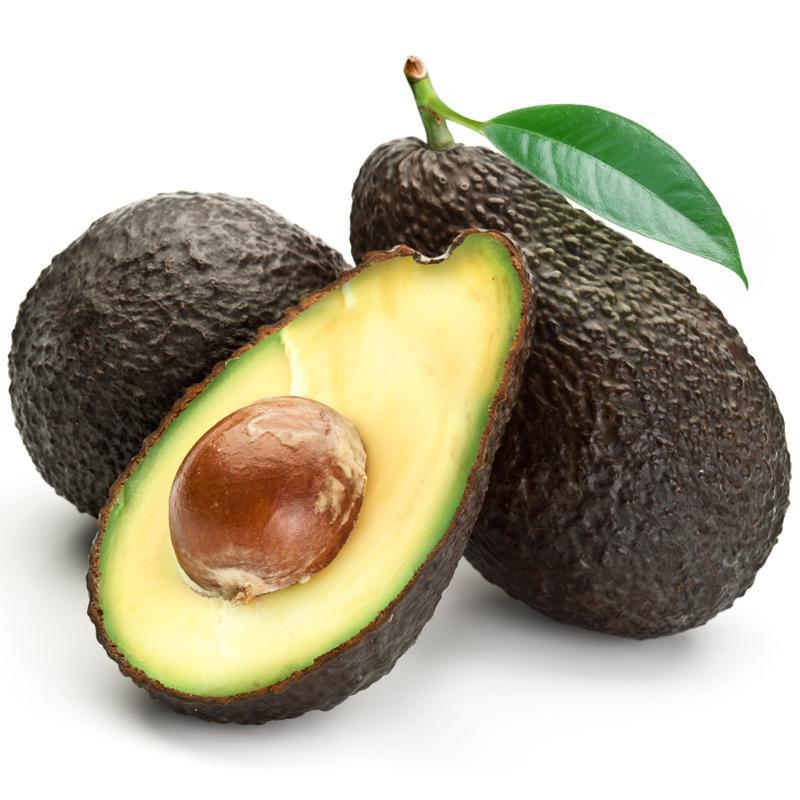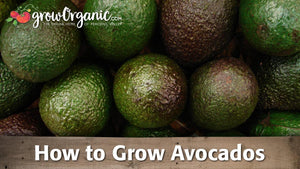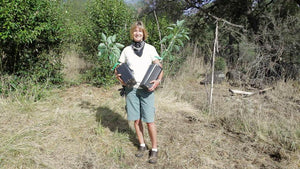Item Number: FT605
Hass Avocado Tree (Potted)
Now Shipping Lower 48 States
Grow Your Own Avocados
Hass Avocado Trees are revered as the largest commercially produced variety, known for their excellent flavor, high oil content, and distinctive pebbly skin. With green fruit that turns black when ripe, Hass avocados have become a staple in kitchens worldwide. If you're searching for a Hass avocado tree for sale, our potted Hass avocado tree offers the perfect addition to your garden. These trees thrive best in full sun and should be planted at the correct soil level to encourage healthy root growth. Mature Hass avocado trees typically reach heights of around 15 feet, making them an attractive and productive feature in USDA Zones 9-10. This guide provides detailed information on how to grow and care for your tree, ensuring a bountiful harvest of creamy, flavorful avocados.
Due to hot summer temperatures, we have temporarily suspended tree shipments to the states of NM, TX, OK, NV and AZ. Shipping to these states will resume in the fall once temperatures subside to levels consistent with safe healthy tree shipment. Shipments to other states will require expedited shipping during the summer months. Thank you for your patience and understanding as we prioritize the protection of your order.
Characteristics of Hass Avocado Trees
- Fruit Quality: Renowned for its creamy texture, excellent flavor, and high oil content, making it a favorite for culinary use.
- Fruit Appearance: Green when unripe, turning deep purple-black when mature. Its signature pebbly skin differentiates it from other avocado varieties.
- Fruit Size: Typically 10–12 oz., making it perfect for various recipes.
- Tree Size: Reaches 25–35 feet in height, ideal for outdoor landscapes but challenging for container growing.
- Ripening Period: Long harvest season from April to September, allowing for continuous picking.
- Frost Sensitivity: Cannot tolerate temperatures below 32ºF; protection is essential in frost-prone areas.
- Rootstock: Grafted onto Mexican Seedling rootstock for enhanced vigor, disease resistance, and soil adaptability.
- Pollination: Self-fruitful in cooler climates, but yields improve with a Type B avocado nearby (e.g., Bacon, Fuerte, Zutano).
How to Grow a Hass Avocado Tree
- Location: Select a sunny, well-drained area with enough space for its mature size.
- Soil Preparation: Enrich soil with compost for optimal drainage and fertility; prefers a pH of 6.0–7.0.
- Planting: Dig a hole slightly larger than the root ball and plant at nursery depth. Water thoroughly after planting.
- Watering: Maintain consistent moisture, especially during establishment. Avoid overwatering.
- Fertilization: Use balanced avocado fertilizer with micronutrients like zinc and iron.
- Pruning: Regular pruning keeps the tree manageable, enhances airflow, and improves fruit production.
- Pest & Disease Management: Monitor for pests (lace bugs, thrips) and diseases (root rot, anthracnose) to ensure tree health.
- Cold Protection: Protect young trees from severe frost to prevent damage.
Tips for Successful Growing
- Mulching: Maintain soil moisture and temperature by applying organic mulch.
- Wind Protection: Shield young trees from strong winds with windbreaks or shelters.
- Branch Support: Use stakes to support heavy branches laden with fruit.
- Harvesting: Pick avocados when they reach mature size and let them ripen at room temperature.
- Container Growing: Suitable for short-term container growing in large pots with proper drainage.
Order & Shipping Information
These potted Hass avocado trees, measured from the top of the root ball, are 18–36” tall with a trunk diameter of 1/4–1/2 inch. They are 12–18 months old and should produce fruit in their 5th year. Each Hass avocado tree arrives in a 5x12" grower's pot. We recommend repotting into a 10–12” diameter container or planting directly in the ground in full sun and at the correct soil level for best results. Mature trees can reach up to 15 feet in height when properly cared for. If you're looking for a Hass avocado tree for sale, be sure to browse our full selection of avocado and citrus trees here.
Note: Order by Thursday to ship the following Wednesday. Avocados cannot ship with other potted trees and will not be delayed for shipment.
Learn More
For a complete avocado care guide, visit our Resource Guide.
Discover more about fruit tree care in our Fruit Tree Central.
Check out our Tree Characteristics for in-depth details.


Check Your Zone Compatibility:
Compatible with your zone.
Growing Zone for

Our Guarantee To You
Since 1976, we've served our customers at every stage of growing. Please contact us at any time. We are happy to support and assist you.
Shipping Information
Shipping Information
Cannot ship to the following states: PR, VI, GU, NV, NM, OK
Cannot be picked up at our retail store.
Shipping Weight: 8.0 lb
Features
Features
- Potted
Characteristics
Characteristics
Planting & Care
Planting & Care
Soil: Well drained soil, sunny locations, and wind protection. If you have heavy clay soils, it is recommended to plant your avocado tree in a raised bed (should be at least 2 feet high). We recommend planting them at least l"-2" inches above the existing soil grade and then creating a small mound around the base with a mixture of compost and well drained soil.
Avocado trees are susceptible to root rot so you should not plant a new avocado tree in a space where an old tree had died as the soil may be contaminated.
It is a good idea to apply a 3 to 4 inch layer of mulch to avocado trees each year to help retain soil moisture and improve soil quality. Apply mulch in spring and fall under the canopy of the tree, keep it away from the trunk of the tree.
Water: Do not overwater avocado trees! Over watering trees in the ground in certain soils is often the number one factor in causing root rot. Avocados prefer infrequent deep root watering. It is best to allow trees to dry out before you apply water again. Avocados in containers do need consistent frequent watering.
Pruning: Avocados should only be minimally pruned in order to shape and control size. Frequent pinching of young trees is a good method to shape the tree, rather than heavy pruning. Avocado trees can be susceptible to sunburn so newly pruned trees and young trees can be whitewashed with interior white latex paint, diluted 50-50 with water during periods of high summer heat and intense sunshine.
Feeding: Avocado trees should be fed on a regular basis. Fertilize using well balanced citrus / avocado food using the manufacturer’s recommendations. Avocado trees that have been well feed year-round are better able to deal with cold temperatures in the winter.
Useful Information
Useful Information
Guarantee
Guarantee
We guarantee the perishable items we sell to be in good, viable condition when we sell them. Perishable items include, but are not limited to, garlic bulbs, flower bulbs, seed potatoes, onion sets & transplants, potted or bare root trees, vegetable crowns, etc. If your perishable item arrives in substandard condition, take photographs and please contact us within 3 days of the purchase date (or delivery date) and we will provide you with a refund of the purchase price (excluding shipping costs), or a replacement. Accordingly, we urge you to open any boxes marked as ""Perishable"" immediately upon receiving them and inspect the shipment thoroughly (do not crack open heads of garlic, we do not accept claims on cracked garlic). Because some perishable items can deteriorate very quickly, we cannot accept any claims beyond the 3-day time frame as it becomes too difficult to determine if these items were delivered in substandard condition, or if they turned into such substandard condition because of having been improperly cared for or stored once delivered.
Share





